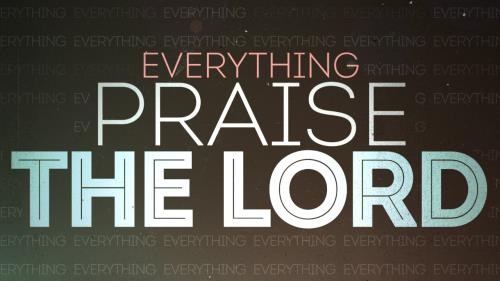-
God's Presence Is With Us
Contributed by Rajendra Kadia on Nov 28, 2017 (message contributor)
Summary: Progressive revelation of God's presence in the Bible
GOD'S PRESENCE IS WITH US
When I was a small kid, I usually got frightened when lightning and thunder occurred during storm. I used to run to home and hide behind mom or dad whenever I was afraid. I always felt safe and secure with my parents during stormy nights. My parents' presence provided me much needed security and safety.
For every child of God, the presence of God still provides a sense of security when we face storms of life. We see several manifestations of God's presence in Bible. Let us review this further.
1. Face to face encounter- Before fall Adam and Eve used to enjoy the fellowship of the Creator God in the Garden of Eden. Every morning and evening the Lord visited them and talked to them. This face to face encounter with God quickly was disrupted because of their disobedience and sin. As a result of fall, the first family was driven out from the Garden of Eden. Today also sin always disrupts our relationship with Holy God (Genesis 2 and 3). Our sins act as a barrier between God and us. "Surely the arm of the LORD is not too short to save, nor his ear too dull to hear. But your iniquities have separated you from your God; your sins have hidden his face from you, so that he will not hear" (Isaiah 59:1, 2).
2. Alters: As we move further in the book of Genesis, we see alters built by people. The alters were built to recognise God's presence and promises. God instructed Noah to build a boat to save his family and various species of birds and animals when God planned to destroy world by the great flood. Noah obeyed God and as a result of his obedience, he and his family was spared from destruction after it rained for forty days and forty nights. After the flood receded, Noah built an alter and offered sacrifices of birds and animals (Genesis 8:20). The Lord accepted Noah's sacrifices and decided not to bring curse on the earth because of sinfulness of mankind.
During Abraham's journey of faith from Ur to a promised land, he built four alters.
Alter no.1: After the Lord appeared to him and he received God's promise Abram built an alter as a reminder (Genesis 12:7)
Alter no.2: The second alter was built when Abram prayed in the name of Lord (Genesis 12:8). It was an altar of prayer and fellowship with God. In a modern context, we need to establish an altar of worship and prayer where we can meet the Lord on a daily basis. Our "alter" of prayer and fellowship will lead us to an intimate relationship with the Lord.
Alter no. 3: Abram built third alter at Hebron, signifying the possession of the Promised Land (Genesis 13:18). When we achieve the promises of God, we need to set up "spiritual memorials" to remember how God fulfilled His promises in our lives.
Alter no. 4: After the Lord commanded Abraham (God changed his name from Abram =exalted father to Abraham=father of many in Genesis 17:5) to offer sacrifice of his beloved son Isaac, he built an alter on one of the mountain in Moriah. The fourth alter he built was an altar of sacrifice (Genesis 22:9). This alter was a real test of Abraham's obedience to God and his love for his son Isaac. Sometimes God wants us to sacrifice the things we love most. Remember that when Abraham chose to obey God, trusting that if God wanted his son's sacrifice, He was still able to fulfil His promise of making him a father of many. God saw Abraham's obedience and faith and returned him Isaac. When we are willing to sacrifice our best to the Lord, He will surely bless us. He may ask to sacrifice something good, only to bless us with something better.
Someone has rightly said "alter is a place where our life can be altered". What we need is a heart of surrendering our best to the Lord and once we do that we can never be the same.
3. Encounters of God with Moses:
a. The Lord appeared to Moses first time in a burning bush (Exodus 3:2, 3). The first encounter of Moses with God was to confirm his calling to set free Israelites from the slavery of Egypt and lead them to the Promised Land.
b. Tabernacle (Exodus 33:7-11). The Hebrew word for tabernacle is "Mishkan" meaning residence, dwelling place of God. This was the temporary dwelling place of God and it was a place of meeting God for Moses. The tabernacle represented the presence of Holy God. Do we have our own "tabernacle" set up to meet and interact with God? Remember the tabernacle was movable and we too can meet the Lord in any place at any time.

 Sermon Central
Sermon Central



